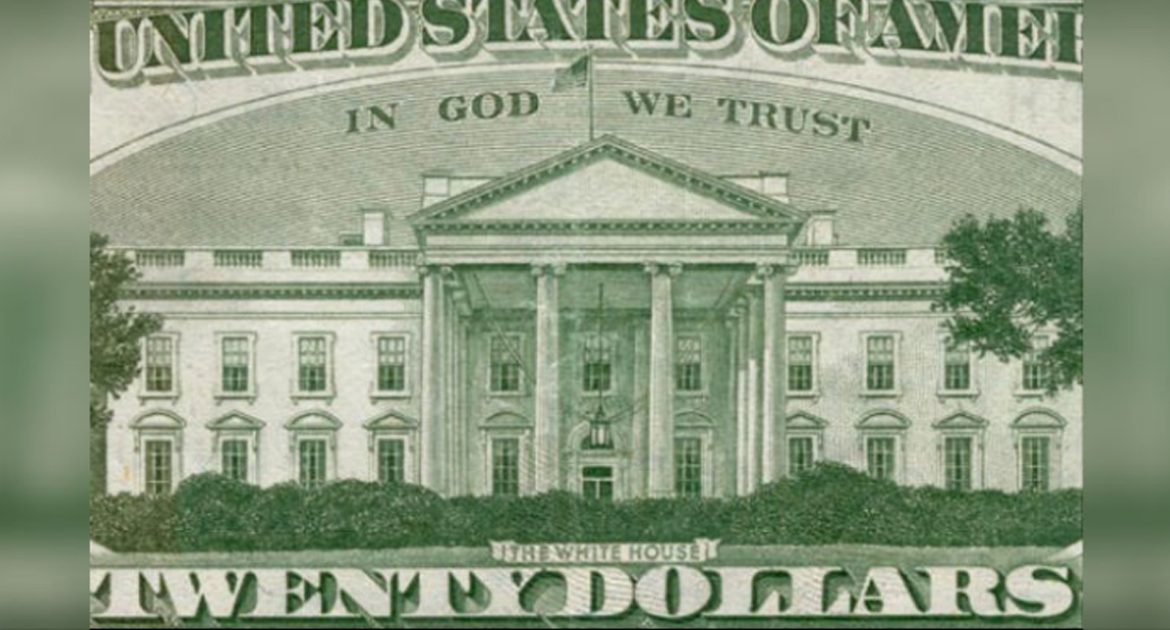A judge recently struck down a case regarding the religious wording on U.S. currency. The plaintiff argued that the phrase “In God We Trust,” that is seen on American dollars, is a breach of the Religious Freedom Restoration Act and places a burden on a person’s right to exercise religious freedom.
The Ohio judge, Benita Pearson disagreed with the plaintiff, issuing that they had no proof of the claimed burden, and stated the following:
“Plaintiffs cannot demonstrate that the use of the motto on currency substantially burdens their religious exercise,” she wrote in her ruling. “Credit cards and checks allow Plaintiffs to conduct the bulk of their purchases with currency not inscribed with the motto. And for cash-only transactions, such as a garage sale or a coin-operated laundromat, the use of the motto on currency does not substantially burden Plaintiffs’ free exercise.”
The attorney who has been the main plaintiff and standing behind the case is California attorney Michael Newdow, who has been on a mission to rid the words “Under God,” from the Pledge of Allegiance. And now he is set on removing “In God We Trust,” from American currency. The suit was filed in the U.S. District Court’s Northern District of Ohio in 2015. Newdow is claiming that the phrase is in violation of the First and Fifth Amendments, along with the Religious Freedom Restoration Act.
“Plaintiffs either specifically do not trust in any ‘G-d’ (with NOT trusting G-d being a basic tenet of their belief systems) or hold G-d’s name so dear and exalted that to inscribe it on a monetary instrument is deemed sinful,” said Newdow in his court documentation.
Judge Pearson, on the other hand, felt differently about the plaintiff’s case and raised the following argument:
“Plaintiffs argue that cash transactions force them to bear a message that they [feel] violate their religious beliefs,” she wrote. “But as the Supreme Court stated in Wooley v. Maynard, ‘The bearer of currency is thus not required to publicly advertise the national motto.’ Furthermore, Plaintiffs’ other concerns, that they may be subject to peer pressure or ridicule, or that their children may question their beliefs, are unlike the choice between a ‘basic benefit and a core belief’ described in the Supreme Court’s case law.”
And while the separation of church and state has been one of the nation’s founding principles, some commenter’s offered their own arguments on the topic…
“Congress shall pass no law respecting an establishment of religion. It doesn’t matter if it violates free will or not. The words “In God We Trust” respects an establishment of religion. On that grounds it should be stricken from government currency.”
“The phrase “seperation of church and state” is a simplistic and misleading representation of the intent of the founding fathers. Their goal was to foster, nourish, and encourage religious belief in God (as oppposed to belief in no god) because they correctly believed that people who think they will someday return and report to their creator are much more likely to be peaceful, loving, thoughtful, forgiving, courteous, etc than people who do not hold such a belief. History is proving the correctness of their perception. All the stats say we are becoming less and less believers in God and they also clearly show our slow decent into rudeness, selfishness, greed and violence. Some will say there is no connection, they need to think that through very carefully.”






